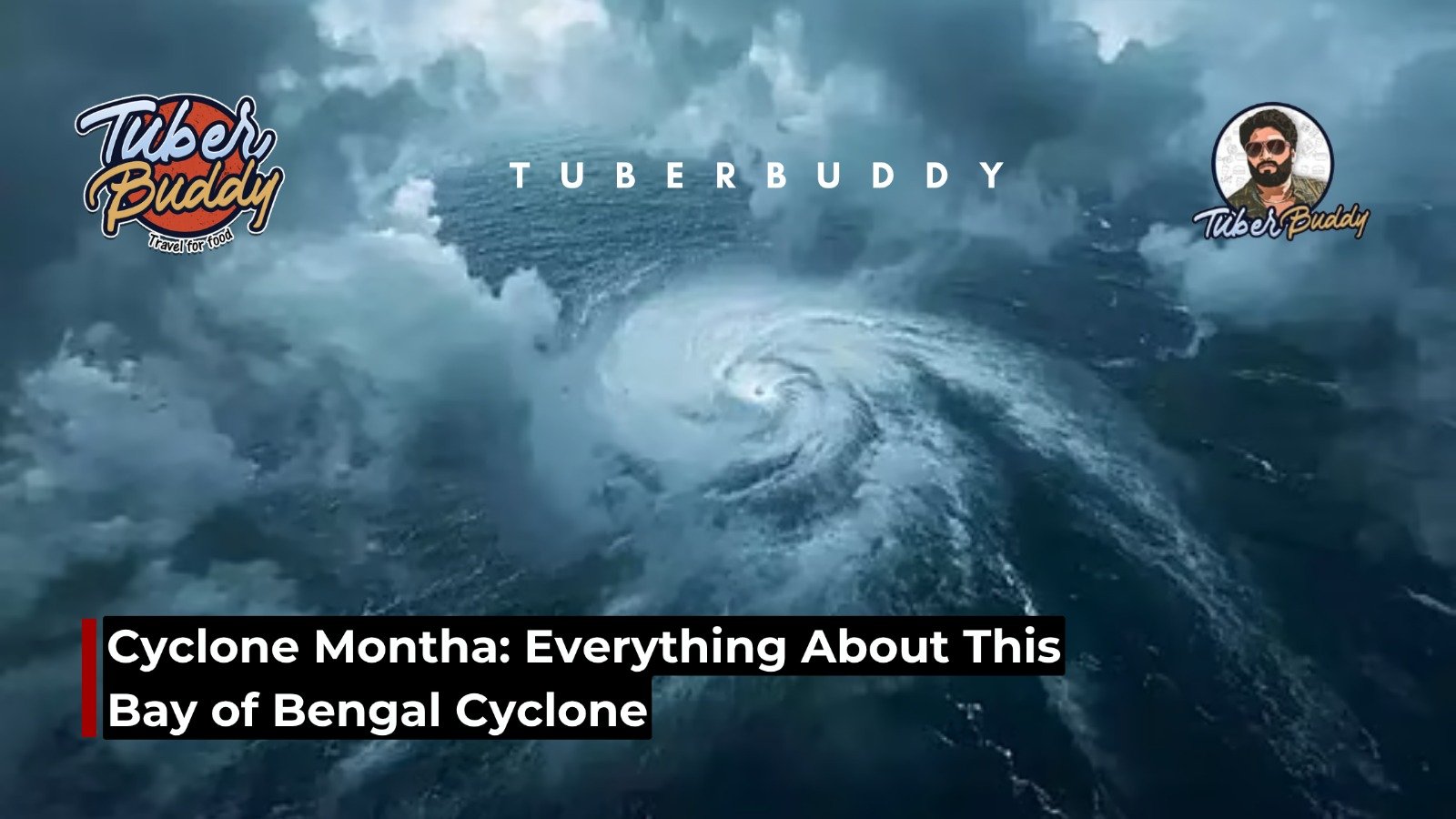Cyclone Montha: Everything About This Bay of Bengal Cyclone

Introduction
The Bay of Bengal has made the headlines once again as Cyclone Montha gains strength on India’s east coast. Cyclone “Montha,” named by Thailand, literally means “a flower of lovely or perfumed” — so sweet a name, it happens to be as cruel as the fury of nature. As Cyclone Montha makes its way towards the Indian shore, residents of Andhra Pradesh, Odisha, and Tamil Nadu are gearing up for showers, gusty winds, and even floods.
In this blog, we’ll explore everything about Cyclone Montha — from how it formed to what precautions citizens and businesses should take — and why climate awareness is more important than ever.
What Is Cyclone Montha?
Montha Cyclone was a Bay of Bengal cyclonic storm that developed towards the end days of October 2025 in the central Bay of Bengal. It developed as an explosively deepened low-pressure system due to the Sea Surface Temperature warmth and also due to favorable atmospheric conditions, as indicated by the India Meteorological Department (IMD).
Montha will travel northwest from here and strike Andhra Pradesh coastal districts and Odisha with 90–100 km/h winds gusting to 110 km/h. Tamil Nadu, coastal districts and Chennai, will see heavy to strong rain and strong winds as the land system advances.
Why Was Cyclone Montha Named
All the cyclones in the Indian Ocean basin are named from a pre-screened and standing pool donated by member countries. Thailand had proposed to use the name “Montha,” which means beauty and perfume.
And as in cyclones, the attractiveness of the name and the destructive destruction brought about by the storm reminds one of a memory of how cunning nature has been.Regions Under Alarm
The IMD has put some coastal areas on alarm:
Andhra Pradesh: Srikakulam, Vizianagaram, and Visakhapatnam districts
Odisha: Ganjam, Puri, and Khordha districts
Tamil Nadu: Chennai, Cuddalore, and Nagapattinam are orange alert for heavy rain
Fishing in the Bay of Bengal has been halted and coastal residents are requested not to venture into sea until times are regular.

Expected Impacts
Heavy Rainfall: Prolonged rain will lead to waterlogging, especially over urban low-lying plains.
Violent Wind Gusts: Trees will be pulled out, flimsy buildings will shut down, and electricity cables will be cut off.
Sea Waves: The fishermen have been warned seriously to stay away from the sea.
Transport Disturbances: Local train, road, and air schedules will probably be delayed in coastal cities.
Safety and Preparedness Advises
Either at home or abroad on work, preparation is the mantra to do during such a time
Stay current with IMD warning and local TV news broadcasting.
Prepare an emergency kit in advance (flashlight, water, first-aid kit, batteries, dry rations).
Charge all your devices beforehand.
Avoid going out when heavy rains or stormy winds are forecasted.
Outer indications, electronic boards, and machinery must be protected by companies.
Keep computer data and internet connection in the backup so that they do not get lost on power breakdown.
Climate Change and Rise in Cyclone Frequency
Climatologists contend that climate change also results in intensification of cyclones and rise in the frequency of cyclones in the Bay of Bengal. Cyclones are energized by warmer seas and are intensified.
Cyclone Montha is a call to go green, reduce carbon footprints, and implement disaster preparedness infrastructure in coastal states.
Post-Cyclone Rehabilitation
As soon as the cyclone blows, the public must have an immediate reaction and coordination.
The government is keen on restoring electricity, clearing felled trees, and granting assistance to victim families. Organizations can help in the recovery process by giving in terms of materials, providing volunteer time as a gift, or giving electronic forms of communication for posting correct information.
Final Thoughts
Cyclone Montha reminds us yet again of nature’s strength and our helplessness. Technology assists us in predicting and monitoring such cyclones, but what actually prevents damage and prevents loss of life are the perception and response of the citizens.
In bracing ourselves for Montha’s landfall, let us remain vigilant, remain secure, and stand with it.
For more stories that connect past and present, Follow Tuber buddy
